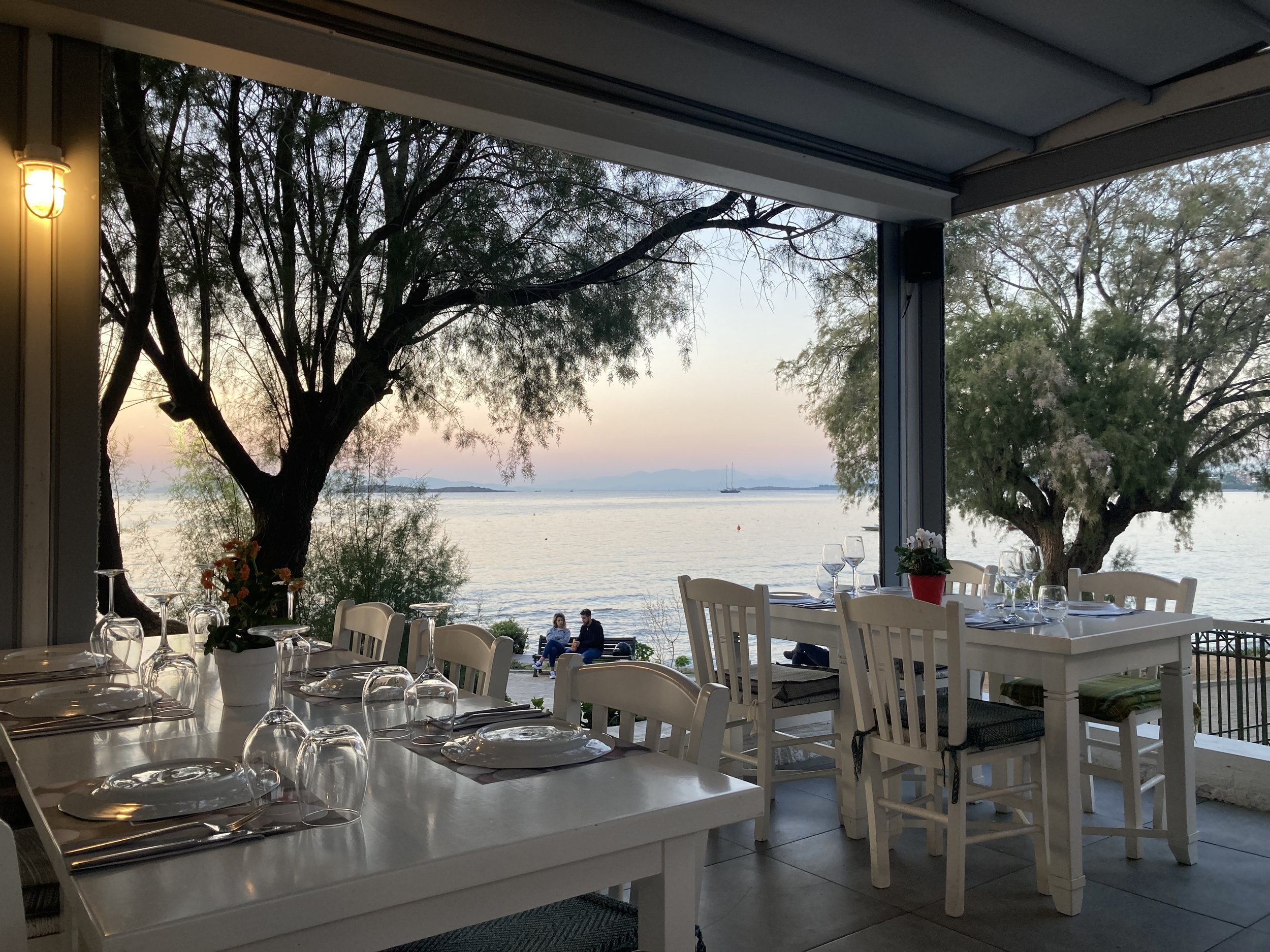
Travelers’ Guide
Travel Insurance
We recommend that you purchase insurance for your trip to protect against the risk of unanticipated events that might prevent traveling. We personally use Good Neighbor Insurance, and have heard good things about Allianz.
Currency and Tipping
Greece is part of the European Union and Eurozone where the Euro is the official currency. Only a few years ago, Greece operated almost entirely on cash. They have leapfrogged technology and almost all businesses take credit cards using chip technology and security. Make sure your card is commonly accepted in Europe (Discover and American Express are difficult), and you have let your institution know about your travel. If you have a travel credit card with no foreign transaction fees, be careful to read the fine print on ATMs and decline the offer for a “lower foreign transaction” fee!
In the past tipping with a little change after a meal was sufficient. I feel that the American culture of tipping is creeping in and 5% is more customary and shows appreciation. Cash tips are appreciated, but if you would like to add it to your card, you may need to ask.
Mobile Phones
Having a smart phone is super handy. Yours probably works on the networks in Europe, but check with your provider. The two big carriers in Greece are Cosmote and Vodaphone. Most providers offer travel packages for international roaming. Our T-Mobile (aka DeutcheTelecom) plan includes basic roaming up to a data limit that I seldom hit. You will probably not require the use of phone minutes on our trip, but having data and text service proves useful. For calls home, I recommend using wi-fi calling from the hotel. Most cafes and restaurants have internet service as well and you can use your phone to place an international call without international rates! Lastly, you may need to turn on international roaming on your phone to properly access the high speed data network. On T-Mobile once you have arrived and after your phone is set to “Roaming On” you will need to dial #766# for full speed roaming.
Toilets
I know this is a strange heading, but it is one of the most unusual cultural things about traveling to Greece. Sanitary drains in Greece are old and mostly not built for modern use. Most toilets will have a waste bin next to them for used toilet paper that would otherwise clog the drain. Please put your paper (as well as feminine products) in the trash. This may be the most annoying thing about Greece to American travelers, but it quickly becomes “second hand.”
Hospitality
As a country where around 18% of Gross Domestic Product is in tourism, Greeks pride themselves on their hospitality and generosity. For example, it is common for a restauranteur to offer an after dinner “gift” of a plate of fruit or sweet liquor. As a guest it is polite to offer warm thanks, but not necessary to consume anything you wouldn’t enjoy. Let your hosts know what a great time you are having and how you have enjoyed their service and they will be very pleased.
Time
Greece is located in GMT+3, Eastern Europe. But time is more relative there. If you are a very early riser you will find peace and solitude in the mornings, and nothing will be open. Coffee shops will open around 7:30 or 8. Lunch is an early afternoon affair and dinner is usually around 8pm or later. From 2pm util 3 or as late as 5, many shops will close for “quiet time”, the afternoon siesta.
Coffee
Coffee (καφε = cafe) is a well established part of Greek culture, and you will find people sitting at shops sipping coffee and talking for hours at a time. Much like in the US, there is a wide variety of competency in coffee shops with some providing some of the best of 4th wave modern baristas and whatever your preferred cup might be. Predictably, it is easier to find fancy coffee in the city centers. Also like in the US, the less competent shops will think they know how to make your drink, even if they haven’t a clue. As a general rule, coffee stands and dedicated shops usually have better trained staff.
If you prefer tea you will be asking for “tsai” (τσάι).
Safety
Greece is generally a safe country to travel, particularly all the places and neighborhoods on our itinerary. Please be careful of pick-pockets in crowded areas especially in Athens. Avoid carrying your wallet in an open back pocket and handbags should be zipper-closed, ideally worn cross-body. As with anyplace, being aware of your surroundings is the best protection and good common sense.
Language
I’m not particularly good with languages, but I find Greek very difficult. Fortunately, they are accustomed to welcoming travelers and most interactions can be navigated in English. Hotel desk staff and restaurant servers particularly should be familiar and able to understand you. That doesn’t mean it’s not polite to ask if they speak English! Sometimes unnecessary if they address you first, but it may be appreciated that the assumption isn’t there.
Meanwhile, having a few words for common exchanges can be helpful and the effort appreciated:
I thank you = ευχαριστώ = ev-hari-stow
(For this one, think of a gentleman named “F. Harry Stowe”)
excuse me / sorry = συγγνώμη = sig-nomi
good morning = καλημέρα = kali-mera
good afternoon = καλησπέρα = kali-spera
good evening = καλό βράδυ = kalo vrathy
hello (singular) = γειά σου = ya sou
hello (plural / formal) = γειά σας = ya sas
yes = ναι = nay
no = όχι = oh-hee
By any chance, do you know where I can find a good bottle of wine? =Μήπως ξέρετε που μπορώ να βρω ενα καλό μπουκάλι κρασί; = Mee-pos kserete pou bo-ro na vro ena kalo boukali krasi?